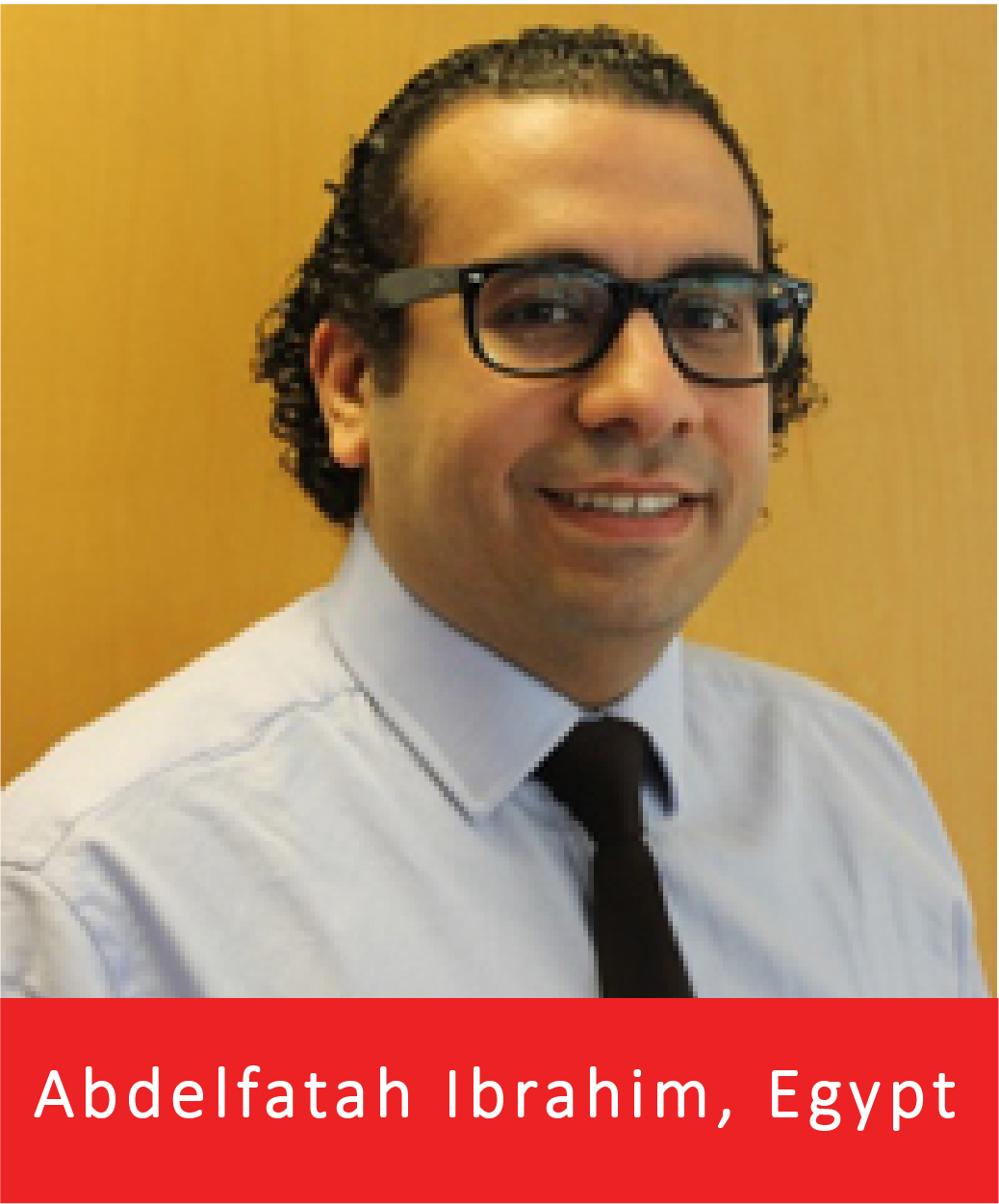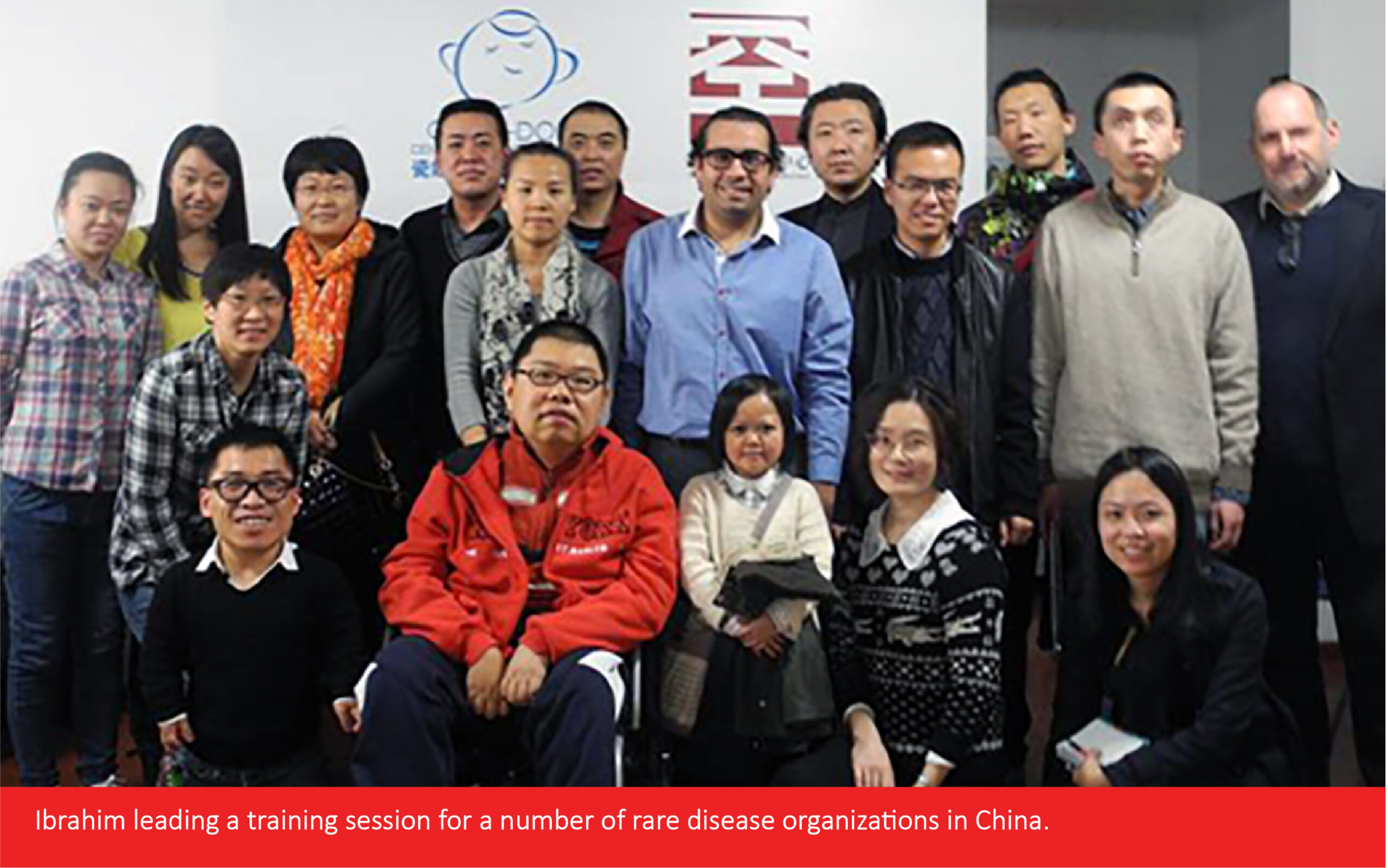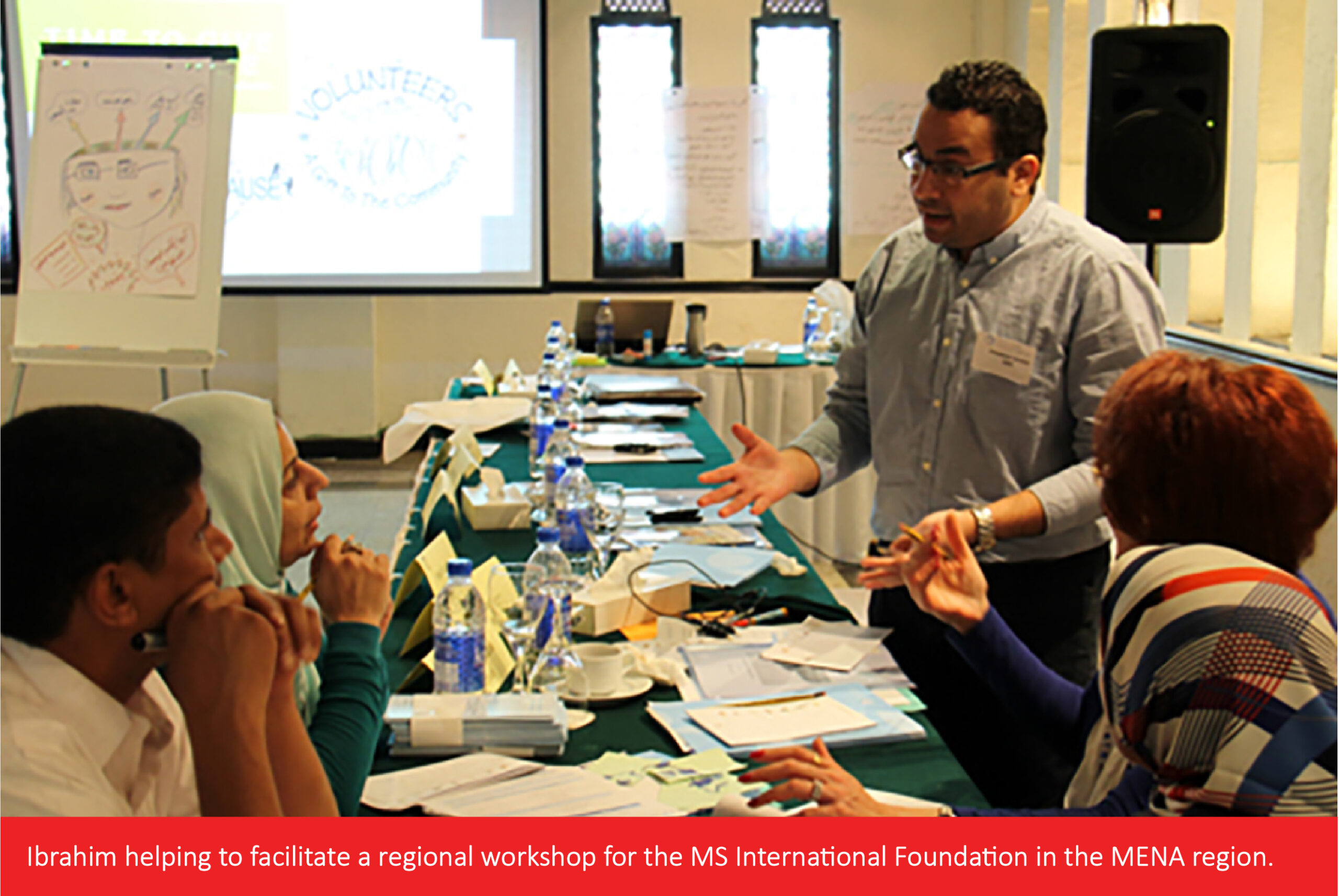Abdelfatah Ibrahim, Egypt

Master’s in International Development University of Birmingham, United Kingdom 2011-2012
Growing up in Cairo, Abdelfatah Ibrahim always felt that something was inherently wrong about the inequality in his community. After working at some international aid agencies in Cairo, Abdelfatah received an IFP fellowship to complete a Master’s in International Development with a pathway in Poverty and Inequality.
We spoke with Abdelfatah about his background, his fellowship experience, and his work and interest in disability and development. The conversation has been edited and condensed for clarity.
How did you think the IFP fellowship would help you?
I worked for a number of years in the international development area, and I felt I wanted to learn more about how it is accomplished. Since my bachelor’s degree was in tourism, it wasn’t easy to advance my career and the public universities did not have a graduate program in international development that I can apply for, meanwhile the private universities were way too expensive for me to afford. I was looking for a fellowship when I saw the opportunity with IFP and I thought well I’ll do my best and apply for this. Ultimately, I wanted to know more about this field, advance my career, and do something for my community.
Tell me about your Master’s program.
I studied International Development at the University of Birmingham with a pathway in Poverty, Inequality and Development. It was difficult to choose one pathway, because there were so many areas of interest, but I felt the most passionate about poverty and inequality discrimination issues. I studied socio-analysis and interventions in poverty and inequality, some theoretical topics, and also some more technical stuff including project management. Why did poverty and inequality pique your interest? Well, I come from country where the poverty level is quite high. Additionally, policies in my country have widened the gap between the rich, middle and poor. I have always felt it was wrong that there are slum areas where people cannot afford basic living expenses next to very modernized and wealthy areas in Cairo. What are you doing now – have you returned to Egypt or remained in England? I have not returned to Egypt. Actually I was offered a job in London before I graduated from my Master’s program. I work for an organization that is part of the which works with multiple sclerosis (MS) organizations around the world. I am on the Capacity Building Team, where we work with and support MS organizations in emerging countries to help them develop their skills and better support people with MS on the ground. Often these organizations are patient-led who want to do something for themselves and others, but don’t necessarily have the organizational or development background – which is where my organization comes in.
That’s wonderful – how did you come to do this kind of work?
I believe that inequality – access to treatment, employment, discrimination – it’s all related. I’m still able to apply my skills on inequality interventions – just perhaps with a different target group but the same purpose. Before I aimed to help people in slums in Egypt, now I’m indirectly helping people with MS in the Middle East and China.
You told me that the IFP fellowship positively impacted your life. How?
There are loads of opportunities to help you study in your home country, but very few that provide a high-quality education like IFP that opens opportunities and gives you the education that will make change happen. I learned a new way of thinking and analyzing the world. I only wish that more people would have this same opportunity to access such a high-quality education. Higher education is essential to allow opportunities for people to access decision-making areas. I am still early in my career and haven’t reached a very influential point yet, but I’m more committed to the international development cause than ever. Without IFP fellowship I would not be able to get my degree in the area I always wanted to learn more about and therefore advanced in my career. 
What are your goals are for the future? Do you see yourself continuing to pursue this kind of work?
Working with the MS community has brought to my attention this group and wider group of people with disabilities that we often forget about. There is always a massive focus on poverty and inequality, but there are other things, such as disabilities, that overlap with those two issues. So I hope to continue working on disability, poverty and inequality causes.